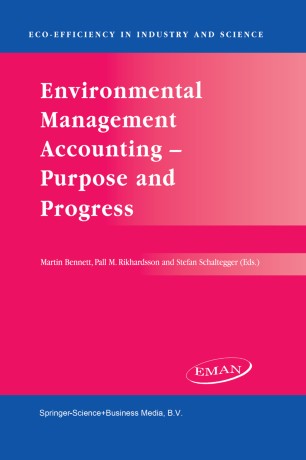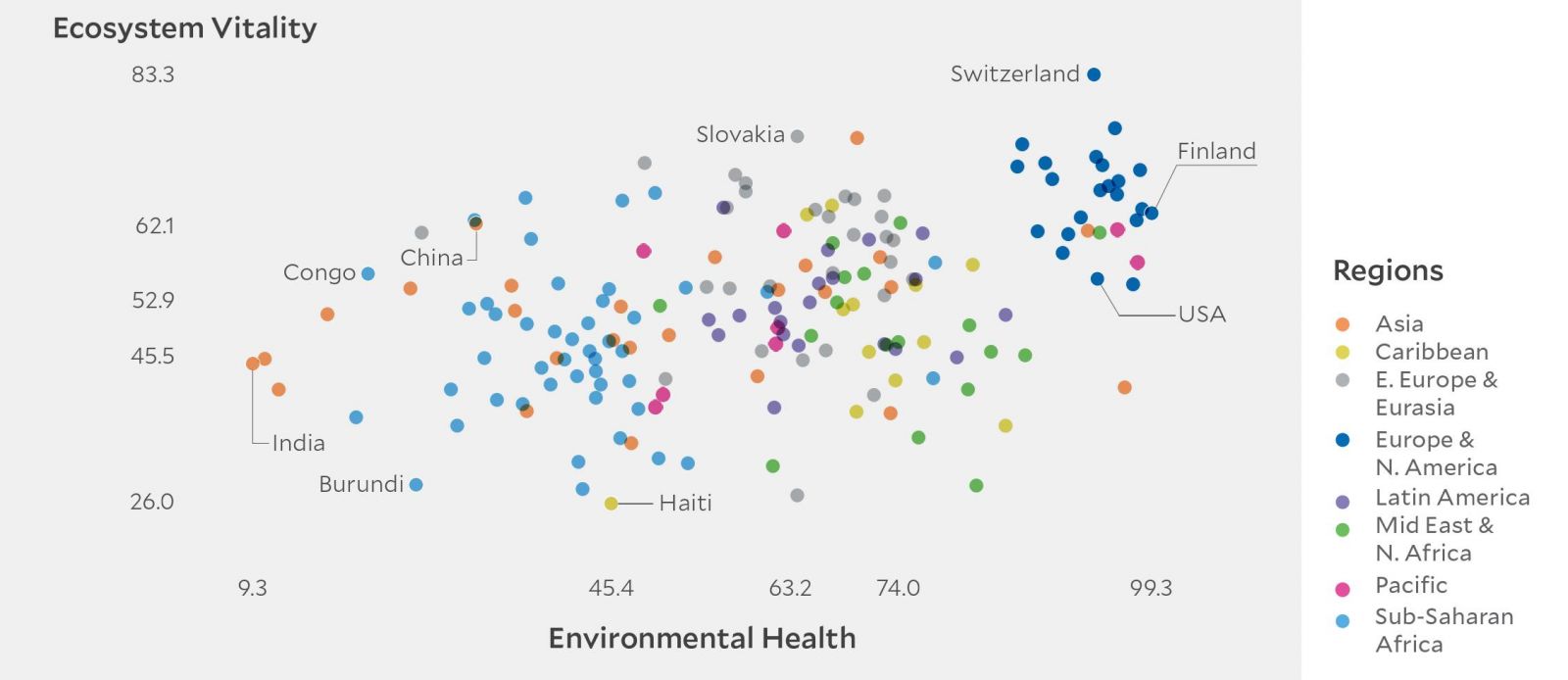Environmental Management Accounting — Purpose and Progress
Free download. Book file PDF easily for everyone and every device. You can download and read online Environmental Management Accounting — Purpose and Progress file PDF Book only if you are registered here. And also you can download or read online all Book PDF file that related with Environmental Management Accounting — Purpose and Progress book. Happy reading Environmental Management Accounting — Purpose and Progress Bookeveryone. Download file Free Book PDF Environmental Management Accounting — Purpose and Progress at Complete PDF Library. This Book have some digital formats such us :paperbook, ebook, kindle, epub, fb2 and another formats. Here is The CompletePDF Book Library. It's free to register here to get Book file PDF Environmental Management Accounting — Purpose and Progress Pocket Guide.
Contents:
Schaltegger, T.
Recommended for you
Hahn, R. Environmental Performance Measurement; E. Gunther, A. Towards Sustainability Indicators for Product Chains. With special reference to an international coffee chain; T. Wolters, M. Loikkanen, J. Schaltegger, R. Bouma, M.
Environmental Management Accounting - Purpose and Progress
Du kanske gillar. Permanent Record Edward Snowden Inbunden.
Inbunden Engelska, In South Africa, a waste man- inefficiency in the use of purchased materials agement strategy that incorporates waste mini- that has not been transformed into a marketable misation was not regarded as a national priority product. Conse- tity and cost during production. A transparent quently, this initial focus changed as new action view of the production process will ensure that plans and policies that address issues of source well-informed decisions are taken to promote fi- reduction, waste recovery and recycling were nancial performance in terms of cost savings, enacted through the Waste Act.
Society at large increased profitability, environmental perfor- will benefit from a safe environment when or- mance and reduction in the volume of waste dis- ganisations and governments alike realise, un- posed to waste sites. Function Van Berkel contends that, with recent advancements in economic and social spheres, Management accounting is concerned with both developed and developing countries face the provision of information to managers so as the challenge of increased waste problems. As such, it is the sulting in climate change impacts necessitated responsibility of the management accounting by waste and emissions van Berkel Peat argues that accoun- efficiently to reduce environment impact through tants are more comfortable dealing with readily environmentally sound waste management sys- quantifiable information and have handled en- tems.
Furthermore, the Waste Act provides that vironmental issues with reluctance.
It has be- productive activities undertaken by any person come necessary for organisations to account or organisation should make use of fewer re- for all its environmentally-related costs and ben- sources NEMWA The Waste Act pro- efits. Such environmentally-related information vides that organisations should ensure the re- will include volume of resource extraction and use, recycling or recovery of waste to the extent consumption in production, and those relating that its disposal is less harmful to the environ- to waste and emissions due to unsustainable ment.
It is beneficial if organisations concentrate In recent years, considerable progress has on process waste-reduction to ensure that waste been made with regards to corporate social re- recycling; waste disposal, wastewater treatment sponsibility CSR , sustainability reporting and and systems costs, as well as environmental lev- Global Reporting Initiative GRI and the Car- ies, fines and legal fees, are drastically reduced bon Disclosure Project.
But most of the envi- Gray and Bebbington Process waste- ronmental information provided in these annual reduction can be achieved through proper iden- reports has been inadequate, unclear, unverifi- tification, documentation and analysis of both able, incomprehensive and inconsistent among the physical and monetary waste information, organisations.

Organisations therefore need to which will assist in better decision-making to develop and apply an Environmental Manage- minimise overall environmental costs. The en- ment Accounting EMA tool that can track, cap- vironment and society at large will benefit more ture, record, and monitor and report the use of if individual organisations provide records of all resources in production. Some of the environ- their waste-generating activities throughout the mentally-related information to be captured by production process to enable well-informed this EMA tool relates to capital maintenance and waste-reduction decisions and improved waste waste costs.
These are issues that need to be management strategy. The management accounting function with- by organisations are thwarted by insufficient in organisations needs to provide adequate en- transparency of material flows Jasch In- vironmental information on every aspect of the sufficient transparency is the inability of the organisation to its decision-makers for improved accounting system within an organisation to waste-reduction decisions. This means that EMA in- activities have on its external environment. The cludes both physical and monetary information inclusion of all environmentally-related informa- to generate environmental issues that are inter- tion will assist organisations to improve their nal to an organisation Burritt et al.
- Pall Rikhardsson - Google 學術搜尋引用文獻;
- ICTS English Language Arts 111 Teacher Certification, 2nd Edition (XAM ICTS).
- Environmental management accounting in local government.
In impact on the environment and have a corre- addition, Gale stresses that understand- sponding positive impact on national waste strat- ing the material purchases value of waste and egy. Environmental Management Systems EMSs According to Gale , while obtaining infor- within the organisation to reduce the impact of mation on waste and emissions treatment is gen- waste and environmental pollution generated in erally accurate, obtaining information on the the production system Yakhou and Doweiler material purchases value of waste and emissions While conventional accounting systems and its related processing costs are difficult.
This Gale A more de- EMA provides information to management tailed system of accounting is required to pro- of organisations by focusing mainly on opera- vide information on specific waste and emissions tional issues such as environmental costs and source in the production process. Activities revenues. Environmental issues such as whether within the organisation that result in emissions to introduce green products or change produc- and waste need to be made transparent by iden- tion technology for a more efficient process is tifying and determining the quantity generated of strategic importance to an organisation when in order to introduce corrective action to avoid, such information are provided through an EMA reduce or possibly eliminate its occurrence.
According to Loew Moreover, the management accounting func- , in order to identify a suitable environ- tion should be able to provide information on mental cost accounting approach by an organi- activities such as capital investment appraisal; sation, it is necessary to identify an approach business strategy development; process design that has a similar concept and purpose to meet supported by existing management information the specific need of the organisation.
The appli- systems which could be enhanced through the cation of a more specific need-related tool, such provision of adequate and accurate waste infor- as Material Flow Cost Accounting MFCA to mation. Furthermore, Jasch contends that while EMA. MFCA identifies quantity and costs of disclosures in such environmental reports, in- waste and emissions in the production process cluding material flow balances such as input- and focuses on these specific environmental output analysis, are usually done without sys- aspects to achieve improved environmental per- tematically integrating material flows informa- formance and cost reduction METI In tion and waste treatment and disposal cost in- material flow management, physical quantity is formation.

Essentially, an appropriate assess- integrated with corresponding cost information ment method that integrates beginning-of-pipe and evaluated for corrective action Nakajima with end-of-pipe costs that quantifies environ- MFCA offers a new set of information mental information is desirable for effective waste that is different to that of conventional cost ac- and emission reduction strategies. These costs include Management need to consider the price of material disposed of. Waste treatment adoption of an EMA tool like Material Flow Cost costs, cost of energy included in waste, cost of Accounting MFCA because of its ability to auxiliary materials, cost of labour included in provide illumination on specific waste and emis- waste and systems cost are included in the en- sions generating process to enable corrective vironmental cost when MFCA is applied Wag- actions for improved environmental perfor- mance.
The availability of adequate in- agement und Umwelt IMU and widely adopt- formation on waste and emissions generated in ed in Japan since Kokubu et al. Kokubu et al. The use of inappro- as finished products or waste. The measure- priate waste gathering tool might have led man- ment and management of environmental and agers to inaccurately estimate waste quantity economic performance of an organisation is an and invariably make it the more difficult to make important social issue because of the impact on sound waste-reduction decisions Wagner The paper reviewed relevant literature to While government policy is intended to in- determine whether the management accounting stil a national culture of improved environmen- function has any role in integrated waste man- tal performance through effective and efficient agement decisions in South Africa.
The ability waste management approach, organisations on of an EMA tool like MFCA to provide illumina- the other hand are the major culprit in pollution tion on specific processes that cause waste gen- and waste generation. The lack of a waste database within or- sound and sustainable waste management sys- ganisations renders waste costs and quantities tems. The inability of organisations to re- have neglected environmental issues.
Waste- duce overall cost is the reason for the lack of reduction by organisations is considered a fac- commitment and innovation to change from the tor for economic development and safe environ- conventional business practice. The review ment. The review revealed that a reduction in suggests that processes responsible for the cre- industrial process waste, through proper identi- ation of waste and emissions should be clearly fication and analysis of the physical quantity identified in order to implement concrete waste- and costs by organisations, will help to mini- reduction strategy for improved productivity, mise overall national environmental pollution.
Hence, a transparent pro- creased economic benefit to an organisation and an improved social and environmental perfor- duction process through the adoption of MFCA mance to the nation at large.
Environmental Management Accounting — Purpose and Progress Adopting Environmental Management Accounting: EMA as a Value-adding Activity. The Sustainability Balanced Scorecard as a Framework to Link Environmental Management Accounting with Strategic Management. Pages Figge, Frank .
Le loro citazioni combinate sono conteggiate solo per il primo articolo. Citazioni unite. Questo conteggio "Citato da" include citazioni ai seguenti articoli in Scholar. Aggiungi coautori Coautori. Carica PDF. PDF Ripristina Elimina per sempre. Segui questo autore. Nuovi articoli di questo autore. Nuove citazioni di questo autore.
Nuovi articoli correlati alla ricerca di questo autore. Indirizzo email per gli aggiornamenti.